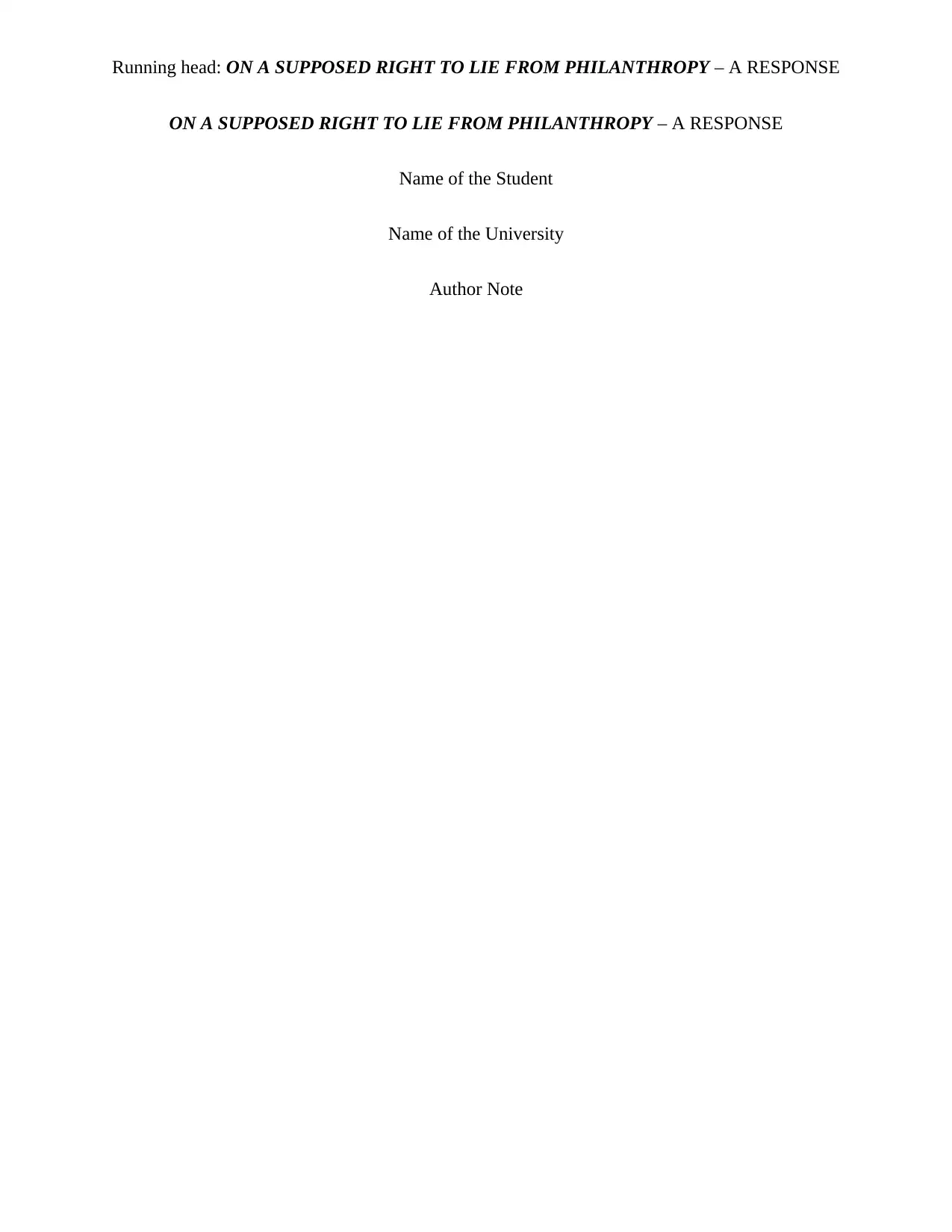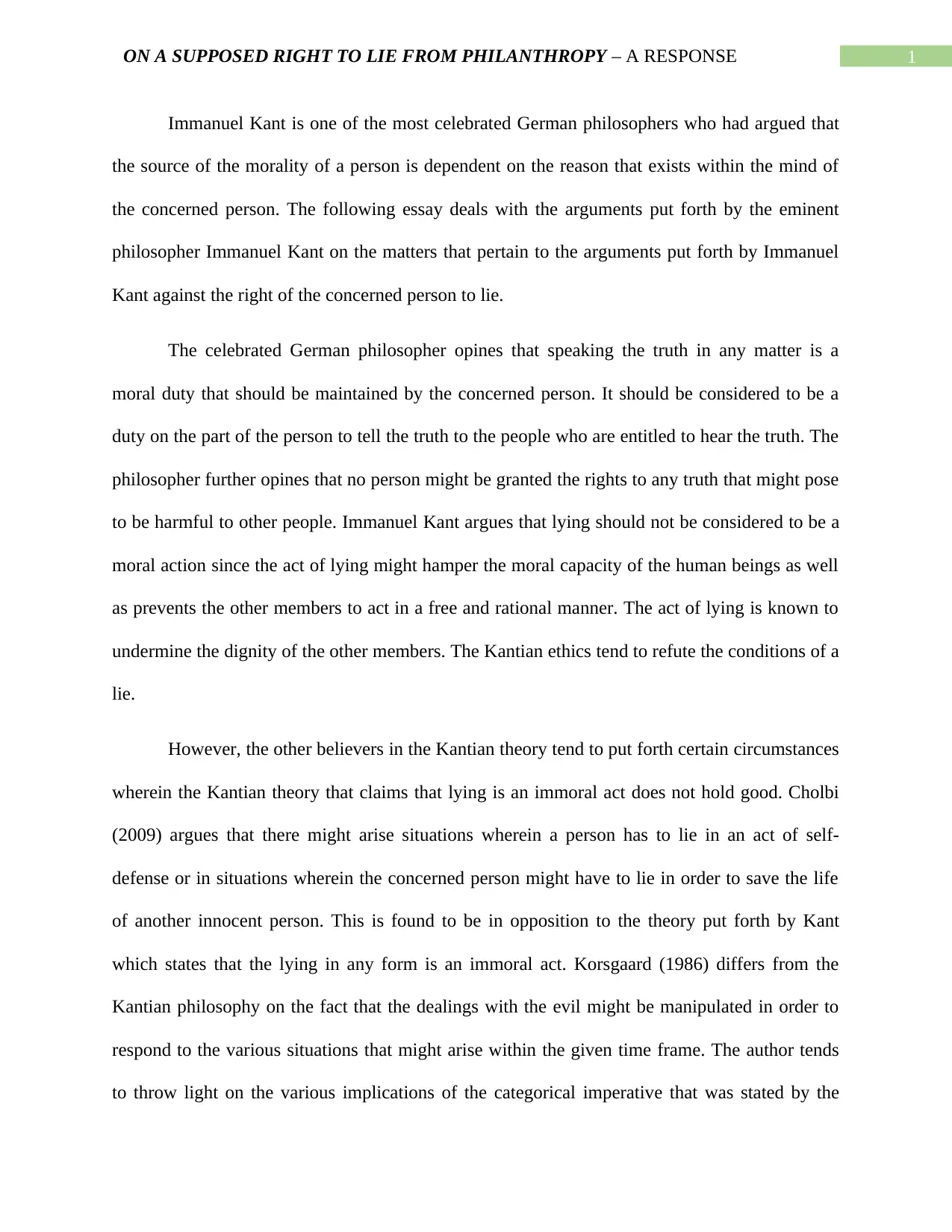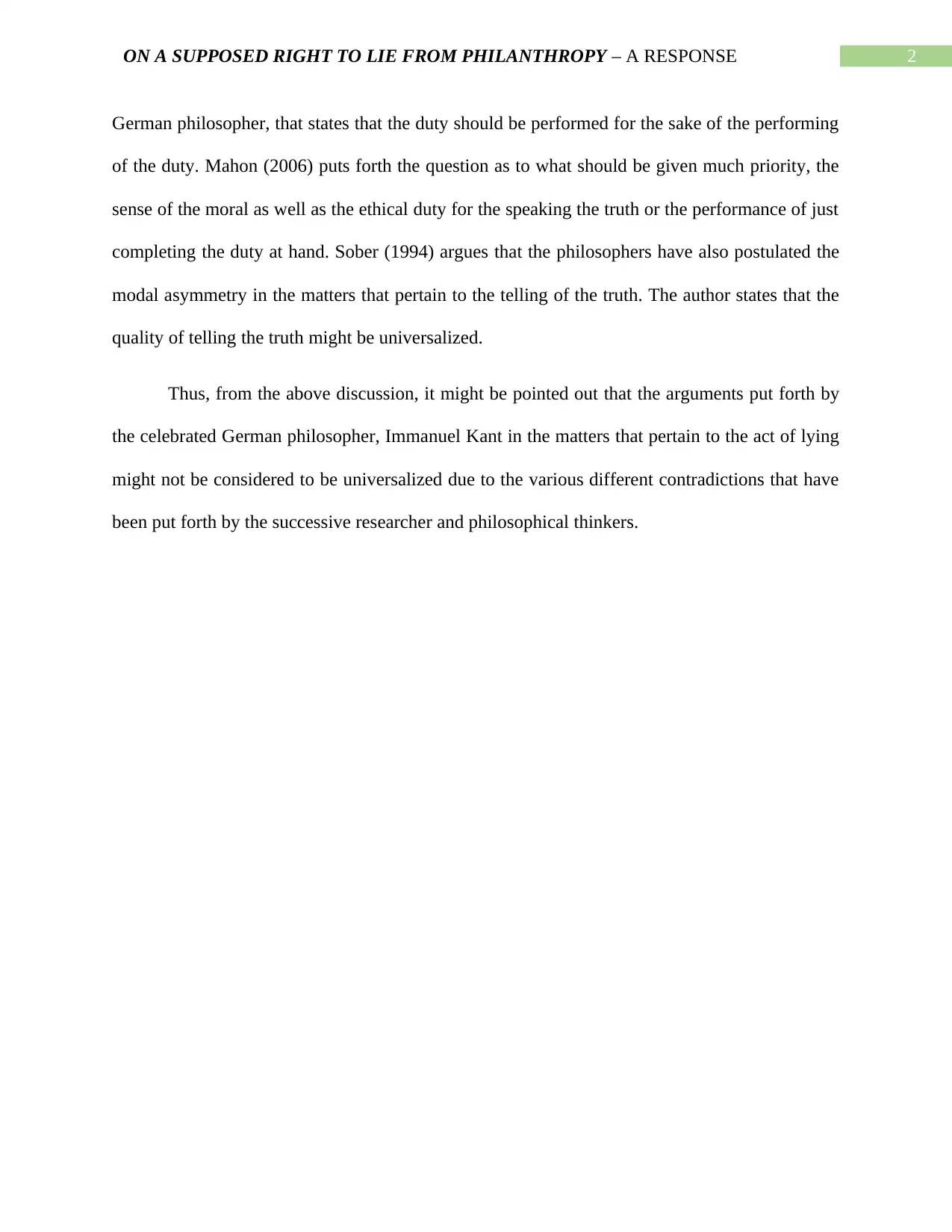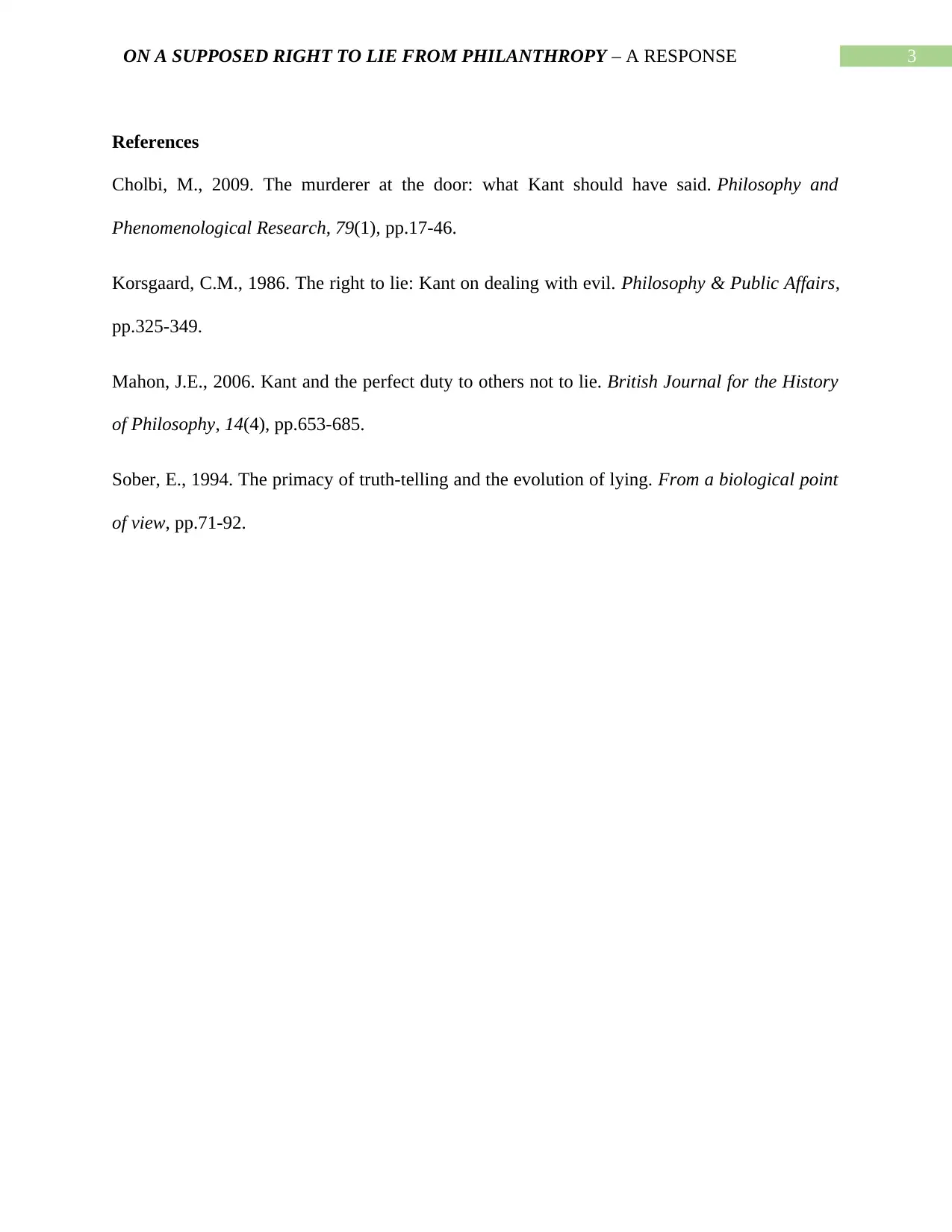University Essay: Kant's 'On a Supposed Right to Lie' Argument
VerifiedAdded on 2023/06/11
|4
|733
|171
Essay
AI Summary
This essay critically analyzes Immanuel Kant's argument against a right to lie, as presented in his text "On a Supposed Right to Lie from Philanthropy." The essay begins by outlining Kant's core belief that truth-telling is a moral duty, rooted in reason and the categorical imperative, and that lying undermines human dignity and rationality. It explores Kant's rejection of any justification for lying, even for philanthropic purposes. However, the essay also acknowledges and discusses criticisms and alternative viewpoints on Kant's stance. Specifically, the essay considers arguments presented by various philosophers, such as Cholbi, Korsgaard, Mahon, and Sober, who offer different perspectives on the potential exceptions to Kant's rule against lying, such as in situations of self-defense or to save innocent lives. The essay concludes by highlighting the ongoing debate and contradictions surrounding Kant's universalized view on lying, suggesting that the strict application of his principles may not always be feasible or morally justifiable in every circumstance. The essay underscores the complexity of ethical decision-making when considering the act of lying and its implications.
1 out of 4









![[object Object]](/_next/static/media/star-bottom.7253800d.svg)